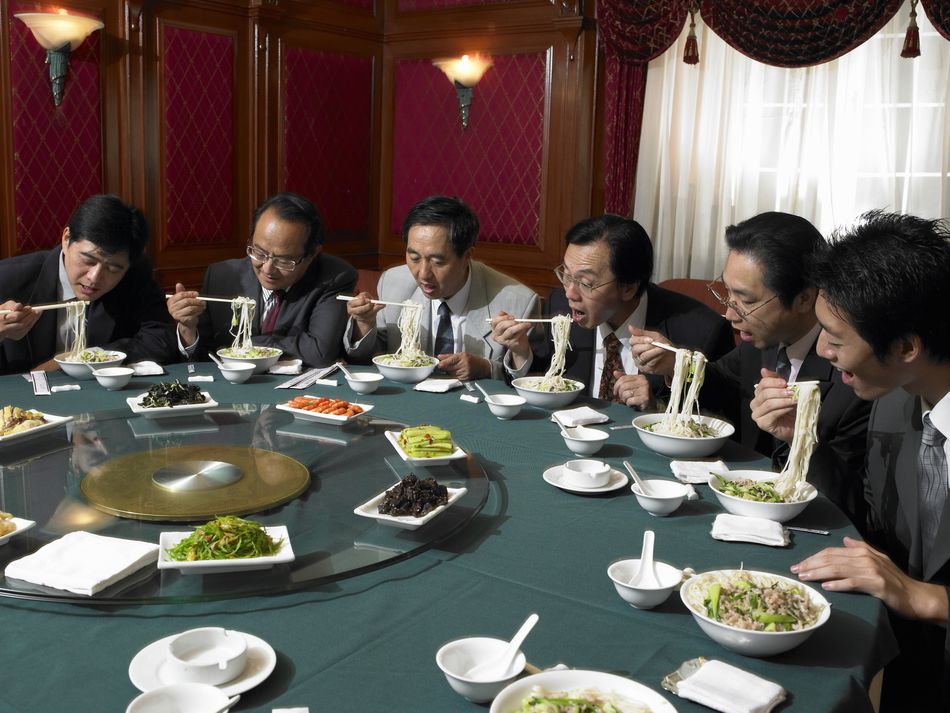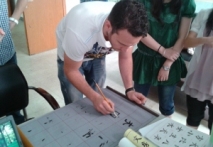Latest News
- Wuxi's Nanchang Street--a historic cultural district that combines classical charm, delicious food, and fun activities
- chinese study
- lastest courses
- Business Assistance/International Consortium of Stem Cell Research
- Foreigner's view of Jiangsu -Changzhou Jintan starts
- estimonials for Our new French Internship student Anais 企业表扬信
- The Double Seventh Festival in China Introduction
- Chinese Proficiency Test (HSK)
- China University Mining and Technology
- Wuxi Library
Students Say
Mandarin Student Zack
Mandarin Education School is a great place to learn Chinese and Chinese Culture.I've learned a lot in this school, my Chine...
Learn Chinese Travel China
If you want to learn Chinese and also discover China, Mandarin Education organize the most funny and cultural study tour.
The...
suzhou Mandarin Jude
I am Jude, I am learning Mandarin in Suzhou Mandarin School,I was learning in Wuxi Mandarin Education too.I like my Chinse Teacher...
chinese class
Improve your reading, speaking and your writing by experiencing our teaching methods,Offer free student Visa.
...
Wuxi Mandarin Jessie
I've learned Chinese for almost 8 years, I can understand what Chinese people say,but when I speak, I feel very uncomfor...
Chinese Internship or Jobs
You are looking for a professional experience abroad? Get the opportunity to discover the Chinese business,Look for an ...
Mandarinedu Student Florent
I love my Wuxi Mandarin Education School. It is the EASY MANDARIN Learning way, I am learning faster than I wanted.My teach...
Mandarin E Learning
Mandarin Education School offers you Online Chinese Courses. It has never been so easier to have Chinese courses ...
Mandarin Student Brad
I am studying Chinese in Mandarin Education School. I can speak quit good Chinese and talk to Chinese people by myself. Thank...
Wuxi Mandarin edu. Student Jennifer
I love learning Chinese in Mandarin Education School.That's a great place to learn and make friends.
...
Add Our School Official
to get more informations

0086 1866 1199 988
0086 510-81151808
Sandy.Swun
519988808
Mandarin Education School
Room 405, 4 Fl,Building No.8,
Maoye Business Center,
Chang jiang No.1,
New district , Wuxi City , China

By Greg Rodgers Updated 09/17/18
Sit up straight. Follow your host. Don't play with your chopsticks.
Demonstrating good Chinese table manners is thought to bring health and good fortune. On the other hand, breaking certain rules can reflect poorly on your parents—they should have taught you better. Plus, an ill-timed faux pas at a banquet could hinder the forging of new deals or friendships. Don't pretend those chopsticks are for playing drums.
As usual, the number one rule for understanding Chinese table manners in a formal setting is to simply relax, observe, and let someone who knows more lead the way! Your hosts will understand your nervousness. They'll most likely do everything they can to prevent any loss of face to all parties at the table.
Chinese Banquets: The Setting
The chair facing the entrance (or east, if possible) is known as the "command seat"—the Eastern equivalent to "the head of the table." Sitting there without being offered is very cheeky. This spot is usually reserved for the person of the highest status as determined by age, social standing, occupation, etc.
Sometimes the guest of honor (you!) may be asked to sit in this spot. Don't turn down the seat if it is offered to you.
In a formal setting, the closer that people are seated to the person of highest status, the higher their rank. But don't covet the big chair too much: the highest-ranking person is usually expected to cover the check!
Getting Started
The head of the table sets the pace for the meal. Unless they're already drunk, you can comfortably follow their lead.
Allow the eldest or highest-ranking person at the table to lift their chopsticks first before you touch yours. If you are the guest of honor, others around the table may be waiting for you to start!
Surprisingly, you usually won't see a communal bowl of white rice on the table. Rice is often served in individual bowls. If you want rice, ask your server for it; others will probably do the same. The Mandarin word for rice sounds like "mee."
Although a drink may help you relax, don't expect a beer or drink to come before your meal—it will probably arrive with the food. Whatever you do, don't drink alcohol alone! At least wait for a formal toast to denote that the drinking has begun.
Good Chinese Table Manners
· If you are provided a cloth napkin, tuck the corner under your plate so that it hangs in your lap. This also prevents it from falling onto a possibly dirty floor.
· When taking a break, leave your chopsticks to the side of your plate or bowl. Use the chopstick rest if one is provided, otherwise, lay your sticks in a tidy manner (parallel with ends even) on the table. Leaving your chopsticks on top of your plate is precarious—it's a sign that you have finished eating. A server may prematurely remove your plate!
· You may lift your bowl to mouth level and use chopsticks to push rice into your mouth. Doing so is perfectly acceptable.
· Unlike in the West, spitting small bones out onto your plate or an empty bowl is acceptable. Doing so is actually preferable to removing them from your mouth with hands or chopsticks.
· If invited to someone's home for a family-style meal, serving utensils might not be present. Turn your chopsticks around when moving food from communal bowls to your own plate. For sanitary reasons, don't use the ends that go into your mouth.
Bad Chinese Dining Etiquette
· Remember, even though chopsticks are fun for people who didn't grow up using them daily, they are eating utensils! Would you spin, tap, play drums, bang together, or point at something with your fork and knife at home? Doing any of these things will brand you as an uncivilized amateur.
· Do not use your chopsticks to point at food or for gesturing in the air while talking. This is an easy mistake to absentmindedly make while complimenting a dish.
· Do not leave your chopsticks pointing directly at someone across the table. Angle them slightly.
· Do not click your chopsticks together to make a noise, use them as drumsticks, or to move anything other than food.
· Do not suck sauce or grains of rice off the ends of your chopsticks, even at the end of the meal.
· Do not spear and lift food that is too slippery to handle. It is acceptable to impale food to tear it apart on the plate. After breaking up food, pick up the smaller pieces as you normally would.
· Try to avoid handling food whenever possible. Lift large pieces of meat with your chopsticks and nibble. Even whole pieces of fried chicken are usually lifted with chopsticks and then nibbled.
· Do not dig around or pick through your food with your chopsticks to find a special morsel. Eat uniformly.
Important Chinese Dining Etiquette
Although most infractions of basic Chinese table manners will be immediately forgiven, these next three rules could make the difference between a good experience or ruining someone's meal.
Prevent any potential embarrassment to yourself or your host by closely observing these important bits of etiquette:
· Passing a piece of food to someone with your chopsticks—or receiving food by snatching it with your chopsticks—is extremely taboo. The motion reminds people of a funeral rite that involves passing cremated bones between loved ones with chopsticks. If you must pass food, put it on the recipient's plate and then allow them to pick it up.
· Do not leave your chopsticks stuck vertically in food. The visual looks too much like incense sticks burned at temples, often as offerings to dead ancestors. Vertical chopsticks are used as a symbol of death.
· Toothpicks are often supplied at the end of a meal. Use your other hand to cover your mouth while digging between teeth. Unlike the other rules, this one has nothing to do with death; it just prevents a gross spectacle.
Chinese Drinking Etiquette
As with eating, drinking is done communally and follows some loose etiquette.
If beer is ordered, you will receive a glass that will be filled from communal bottles. Beer is often poured at the same time the food arrives. Having an alcoholic drink before the food arrives is unusual, however, you may have tea, water, or juice before eating.
Alcohol should generally not be consumed alone in formal settings. Watch to see if anyone else is sipping when they want. Try to drink only after a toast is given. At the least, lift your glass to someone nearby, make eye contact, and say gan bei which means "empty glass."
You may get roped into drinking baijiu—a fiery distilled spirit with an ABV between 40-60 percent. When taking shots of baijiu, you are generally expected to empty your glass after each toast! The glasses are small, but they add up quickly. Hold on and enjoy the cultural ride.
Your glass will probably be immediately refilled after each toast in preparation for the next one. Good luck.
Eating with a Lazy Susan
The lazy Susan is a rotating surface in the center of the table, often glass, that those seated around can spin. This allows guests to reach all the dishes around a large, round table rather than having to pass lots of plates around. Tables furnished with a lazy Suzan add another dimension to the experience.
Avoid bumping or turning the lazy Susan whenever someone is serving themselves from the communal dishes. Trying to guess the timing of when a dish will come around is tricky, so don't be shy! At a busy table, being too passive may mean not getting to try that delicious-looking dish just out of reach.
If bad timing prevails and you accidentally end up fighting someone for control of the lazy Susan, share a giggle with them then wait your turn.
Keeping the good or more expensive dishes (e.g., the meat or fish) nearer to yourself is considered rude. Allow them to circulate the table before you spin them back to your own plate.
Paying the Bill
Everyone's least favorite part. But now it's time to play a necessary little game that is important: who will pick up the check.
Ultimately refusing to allow your host to pay for a meal, no matter how expensive, is extremely rude. Doing so insinuates that they cannot afford to pay. That being said, you should still argue at least two or three times for the opportunity to pay. As mentioned, it's a little game, a dance of politeness. Regardless, always give in eventually and graciously accept the hospitality of your host.
Failing to argue over the bill insinuates that your host owes you something. Thank them many times after agreeing that they will take the bill.
Unlike in the West, the recipient of a meal shouldn't offer to help with the tip as a courtesy. Tipping is not customary in China. Leaving gratuity can sometimes cause confusion or embarrassment. In nicer restaurants, a service charge of around 10 percent may already be added to the bill.
If you really, really want to give back to your hosts, you can do so at a later time by bringing a nice gift the next time you see them.










